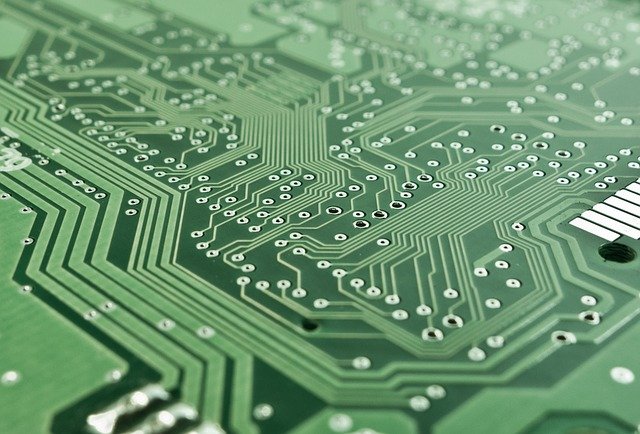News
Three potential new demo cases in the New Nano Enabled Products Pilot Project

Three potential new demo cases in the New Nano Enabled Products Pilot Project
In April 2018, the Emilia-Romagna region joined Skåne as co-leading region for the Nano Pilot. This new partnership has had a positive impact on the Pilot and progress has been made across all three demo cases. Three potential new demo cases were presented at the plenary meeting organised in Bologna on 12 -13th of November 2018; RAV - Novel Research Approach to Evaluate Nanotechnology Innovation in the European Environment, Self-cleaning nanostructured vitreous enamel coating for hostile environment, and Nanotechnology systems and devices from biomaterials. Furthermore, progress has been made in all three existing demo cases during the last couple of months. Several relevant researchers in nanowires were identified during a meeting between the demo case leader for the Nanowires for ICT and Energy Applications demo case in Bologna in March. The NeMs4Bio demo case has welcomed East Netherlands as new co-leader and the Nano-Enabled Printed Electronics demo case continue exploring the different project ideas developed within the demo case.
In April 2018, the Emilia-Romagna region joined Skåne as co-leading region for the Nano Pilot. This new partnership has had a positive impact on the Pilot and progress has been made across all three demo cases: On 20th February 2019, the Nano Pilot presented its progress report and the 2019 action plan during the Network Representatives Meeting in Brussels. One of the highlights of the progress report was the plenary meeting organised in Bologna on 12 -13th November 2018 where three potential new demo cases were presented:
- RAV - Novel Research Approach to Evaluate Nanotechnology Innovation in the European Environment, Massimo Bersani & Vittorio Guarnieri
- Self-cleaning nanostructured vitreous enamel coating for hostile environment, Andrea Zucchelli
- Nanotechnology systems and devices from biomaterials, Greta Varchi.
In addition, during the plenary meeting in Bologna, there were visits to DICAM and DIN laboratories. During the visit, several innovations in the area of nano-enabled nanomaterials were presented.
Updates on the three demo cases within the Nano Pilot
Nanowires for ICT and Energy Applications
To take the next step in the demo case and make connections between the regions around the nanowire technology in Lund, Sweden, it is necessary to focus on networking activities. These activities should bring together researchers from universities and institutes who will discuss possible joint research activities. These networking activities shall also focus on market applications and have the goal to involve companies in the cooperation.
A meeting between the demo case leader (Salter) and representatives from the Emilia Romagna region was held in Bologna on 12th March, in conjunction with the ECSEL Italy Day. Several relevant researchers in nanowires were identified.
A workshop is planned for April with local actors within the Skåne region in Sweden to collect and disseminate information regarding Vanguard collaborations for nanowires. The workshop has two purposes: 1) to gather data on the nanowires applications and to develop a business case for the nanowire demonstration case; 2) to discuss potential cross-regional collaborations in the field of nanotechnology and to identify synergies with other European regions.
Nems4Bio
The demo-case builds further on its concept note developed in 2018, which allows the mapping of capabilities and expertise towards the NeMs4Bio case at regional level. A first set of six regions have been approached, based on their initial interest, fit to work more in detail on competences (capability, capacity and fit with the expected technology readiness level) and mapping them to the envisioned value chain.
The leadership of the demo case has been broadened with welcoming East Netherlands as co-leader. The objective of this demo case is to quickly develop complete and tailor-made lab-on-a-chip applications for medium volume development requests, based on standardized solutions. The team is currently completing the compilation and integration of additional information from the six regions involved. A workshop with these regions will be organised in the end of April to perform a joint review and start the development of implementation options.
Nano-Enabled Printed Electronics
The demo case wants to bring functional printing into industrial application and complete value chains with this additive, simple and fast technique. The challenge tackled by the demon case is the transfer of such technologies from the lab to the market. The demo case contains several projects at present:
Printed Smart Tags: Development of an interface for the interaction with a smartphone display for variable applications. A feasibility study has been completed that resulted in a proof of product and that two joint patent applications have been filed.
Printed Electronics on Curved Surfaces (SHAPETRONICS): Development of technologies to apply functional printed structures directly onto 3D metallic objects. The technology is developed and the demo case is looking for possible use cases.
Smart Textiles and Sensors: Product design and commercialisation of integrated sensors in textiles. This initiative was presented during the meeting in Bologna and it is now being discussed if this case can become a new demo case.
